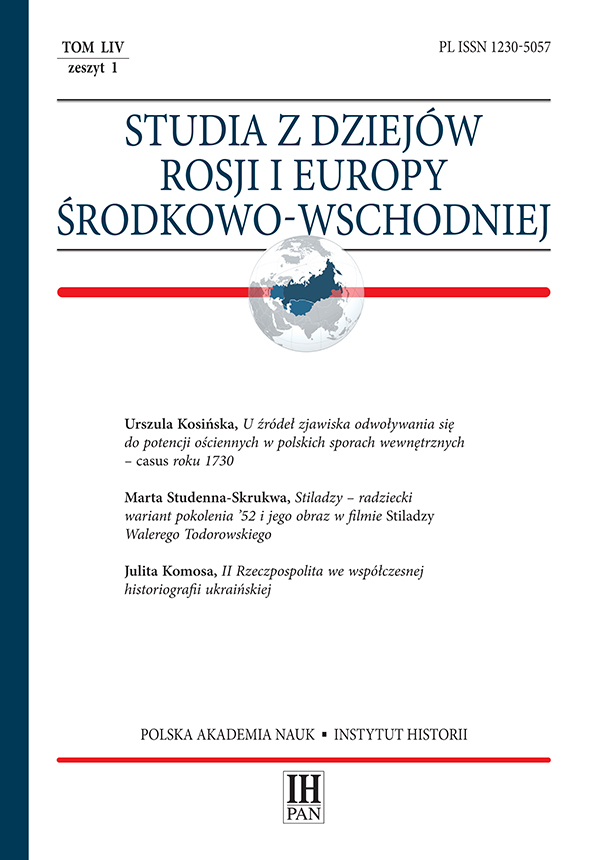Konfederacja targowicka w 1792 r. w świetle korespondencji służbowej rosyjskiego generała Michaiła Kreczetnikowa
Targowica Confederation of 1792 in the Light of Official Correspondence of Russian General Mikhail Krechetnikov
Author(s): Vadzim AnipiarkouSubject(s): History, Diplomatic history, Oral history, Political history, Modern Age, 18th Century
Published by: Instytut Historii im. Tadeusza Manteuffla Polskiej Akademii Nauk
Keywords: Targowica Confederation; Russian war against the Commonwealth of 1792; military correspondence; Great Duchy of Lithuania; Mikhail N. Krechetnikov; Szymon Kossakowski;
Summary/Abstract: The author analyses the official correspondence of the commander of the Russian army Mikhail N. Krechetnikov, revealing completely different accounts and opinions of the events of the 1792 war and the creation of pro-Russian confederations in the Grand Duchy of Lithuania. One part of Krechetnikov’s letters to Empress Catherine II and her favourite Platon A. Zubov is widely known; it was published as early as the nineteenth century, and when there was no access to Russian archives, it often served as a basis for researchers’ theses and establishments of facts. In this part of his letters, Krechetnikov described in detail the victories of Russian troops and their political consequences in the form of the creation of local confederations, while refraining from comments that could even partially overshadow the success in the eyes of the empress. His other, much more personal and real opinions about the events of 1792, are to be found in Krechetnikov’s letters to the head of the Military College in the person of Nikolai I. Saltykov, which have not been published.One of the main subjects of this correspondence was the sharp conflict between Krechetnikov and Szymon Kossakowski, one of the members of the confederation of Targowica and Zubov’s protégé. It is this part of the letters that remains unknown even to specialists, while it contains in the most objective Kreczetnikov’s presentation of military and political events of 1792, with a description of numerous problems of the Russian army, their fears of uprising at the back of their troops and difficulties in creating local confederations. After comparing the content of Krechetnikov’s correspondence to various recipients, we can clearly see that the reports sent to Empress Catherine II by military commanders did not provide a real picture of the situation; only after analysing other archival materials (in this case correspondence with Saltykov), we can learn the real situation. Most importantly, this image shows in a completely different light the scene of the struggle in the war of 1792 and its assessment from the perspective of its main actors, Russian commanders.
Journal: Studia z Dziejów Rosji i Europy Środkowo-Wschodniej
- Issue Year: 54/2019
- Issue No: 1
- Page Range: 75-97
- Page Count: 23
- Language: Polish

